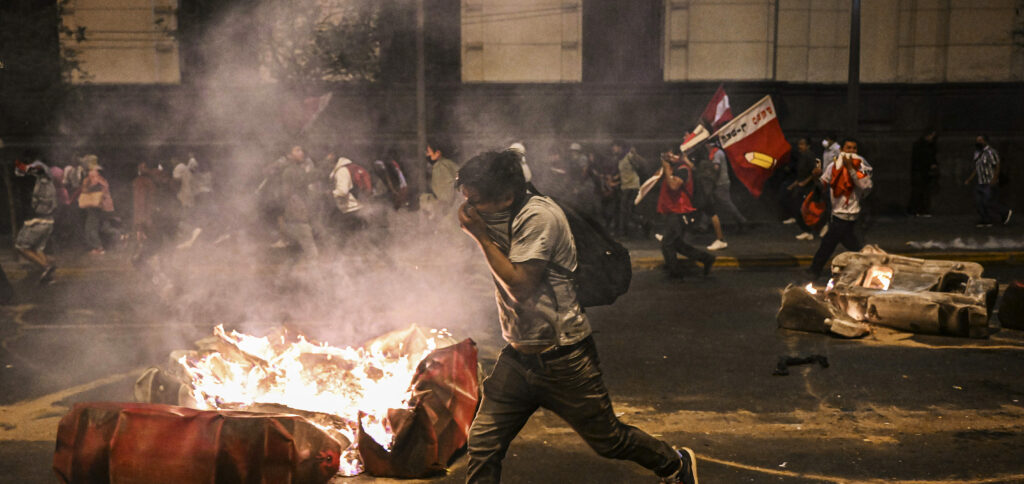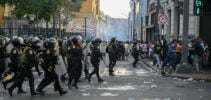The most intense clashes between protesters and the Peruvian government were concentrated in the regions of La Libertad (North), Arequipa and Puno (South), with roadblocks and pitched battles.
ADVERTISING
As protesters throw rocks with slingshots, police respond with tear gas. But the riots in the country have been causing deaths: around 50 since the beginning of December.
In the Puno region, a mob burned down the Zepita district police station and set fire to a customs post in Desguadero, on the border with Bolivia, local television reported.
In Arequipa, the second largest city in the country, dozens of residents tried, for the second day in a row, to invade the airport's landing strip, which is closed and protected by security forces.
ADVERTISING
In the country's capital, Lima, thousands of protesters marched loudly and shouted slogans: “Murderous Dina!” and “This democracy is not a democracy! Dina, the people reject you!”
With a Yunguyo flag — people from the shores of Lake Titicaca on the border with Bolivia — on her back and wearing a white straw hat, Olga Mamani, 50, said: “We want Dina to resign. If she does not resign, the people will not be at peace.”
“The coca leaf gives us strength for this fight we have started, we want Dina to resign and Congress to close […] we will stay here until the final consequences,” said Antonio Huamán, a 45-year-old peasant who left Andahuaylas, epicenter of the demonstrations in December.
ADVERTISING
On Thursday (19), the government declared the emergency state in seven of the country's 25 regions. Thus, the country continues with military intervention with the police, to control public order.
The disturbances began after the dismissal and detention of the left-wing and indigenous president Pedro Castillo. He was accused of attempting a coup d'état by wanting to dissolve Congress, controlled by the right, which was on the verge of removing him from power on suspicion of corruption.
Castillo was replaced by Boluarte, his vice president, but she is seen as a “traitor” by protesters.
ADVERTISING
Tourists stranded in Machu Picchu
The suspension of trains to Machu Picchu, imposed on Friday (19), left at least 417 tourists, including foreigners and locals, stranded in Aguas Calientes. This location is at the foot of the mountain, where the famous Inca citadel was built.
“They cannot leave because the railway was damaged in different sections. Some tourists chose to walk to Piscacucho (near Ollantaytambo), but it is a walk of six hours or more, and very few people are able to do it”, declared the Minister of Foreign Trade, Luis Fernando Helguero, to the press.
“We’re not sure a train will come and pick us up. As you can see, all the tourists here are lining up, collecting signatures and registering” so they can be evacuated, Chilean Alem López told AFP.
ADVERTISING
(Source: AFP)
See also:





